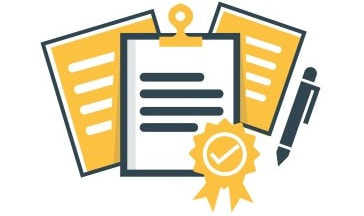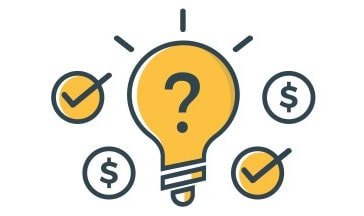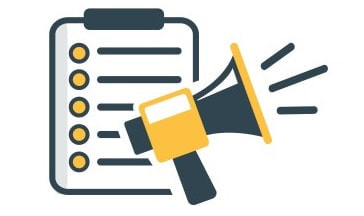Offset Mortgage Guide
We explain how an offset mortgage reduces your interest costs, highlight the pros and cons and outline the best offers from the BNZ, Kiwibank and Westpac
Updated 11 July 2024
Summary
- An offset mortgage links your mortgage to your everyday cash savings account. The total sum of your savings is deducted from your mortgage balance, which reduces your monthly interest costs and repayments.
- For example, if you have a $500,000 mortgage and $20,000 in cash savings, you’ll only pay interest on $480,000. You won’t earn in interest on the cash savings as you usually would while it’s part of the offset mortgage.
- Because mortgage interest rates are almost always higher than cash deposit rates, an offset mortgage could save you money. What matters is the offset mortgage interest rate, which is usually higher than the best 2-year, 3-year and 5-year fixed rates .
- Several banks offer offset mortgages, all with different interest rates and fees. The BNZ’s TotalMoney offer, for example, allows you to link up to 50 bank accounts of your parents and children.
- You and family members can still access their cash savings accounts – the interest charged is calculated daily. As you save more money, you’ll pay less mortgage interest, and vice versa.
- Want to see if an offset mortgage can save you money? Visit our Offset Mortgage Calculator
An offset mortgage is not for everyone. For most first-home buyers, finances are already stretched and having any extra savings are a luxury. This guide covers everything you need to know, including pros, cons and offset mortgage deals currently available.
In this guide we cover:
In this guide we cover:
How offset mortgages work
An offset mortgage doesn’t affect the value of your savings. Instead, your savings are deposited with the bank, and their value is ‘offset’ against your mortgage balance. For example, if you have a $500,000 mortgage and $20,000 in cash savings, you’ll only pay interest on $480,000. You won’t earn in interest on the cash savings as you usually would while it’s part of the offset mortgage.
Offset mortgages have a few unique features you need to know about - our Offset Mortgage FAQs section below explains these in detail.
- With an interest rate if 7%, you’ll save $1,400 a year in interest payments ($20,000 X 7%), which makes your mortgage ‘cheaper’.
- However, you won’t earn any interest on your savings balance, so this needs to be factored in to calculate the actual saving.
- For example, if you expected to earn 4% p.a. on the $20,000, you would have earned $800 (or around $550 after-tax).
- The likely saving from using an offset mortgage in this example is around $850 per year. However, the mortgage market is changing a lot, so this is an example only.
- Fees may also apply – some offset mortgages charge $10/month, so this needs to be factored in. As a point of comparison, standard home loans rarely charge monthly fees.
Offset mortgages have a few unique features you need to know about - our Offset Mortgage FAQs section below explains these in detail.
Offset Mortgages – Pros and Cons
Pros:
Cons:
- Control over your monthly mortgage cost – while the principal repayment stays the same, the interest component will fall if you add more to your savings accounts.
- You are likely to save money - mortgage interest rates are, in most cases, higher than savings interest rates. You forgo interest income but save more overall, which can help pay off the mortgage faster
- There are tax benefits - your savings are working to pay off your mortgage instead of earning interest, you won’t be taxed. Typically, interest earned on savings will be taxed at your PAYE rate.
- You have full access to your savings – this means your personal financial situation is flexible.
- You can offset your mortgage with up to 50 savings accounts (if using a BNZ account), which means family members can take part. However, explaining the concept of an offset mortgage, how it will work and getting them comfortable may take some time.
- You have a savings cushion – if you lose your job, it’s unlikely the bank will loan your money. Having an offset mortgage gives you a cushion to draw down on until you find another job. What are the disadvantages of offset mortgages?
- You can make overpayments without penalty – because offset mortgages are floating in nature, you can put money onto your mortgage and see the outstanding balance fall without being charged early repayment fees. Fixed-term mortgages don’t allow this.
Cons:
- Higher interest rates – you’re likely to be offered an interest rate above the current 2-year and 5-year home loan deals.
- Interest rate is floating, not fixed – the interest rate you pay will move if the Reserve Bank of New Zealand moves interest rates. This means your monthly mortgage cost could go up or down.
- You won’t earn interest on savings – interest rates on savings and call accounts are low, but you will still lose out
- There’s no ‘right’ number as to how much to have in savings – what is best depends on the mortgage and savings interest rates available at the time.
- Monthly fees may apply – some banks charge ongoing fees for having an offset mortgage, which is debited from your current account.
- Your savings accounts must be with the bank your offset mortgage is with – this isn’t necessarily negative, but you will have to move your money around to maximise the offsetting benefits.
Bottom Line
- Overall - The closer the offset mortgage interest rate is to a standard fixed 2-year or 5-year deal, the better the deal. Otherwise, it can cost more and not serve its purpose of reducing interest costs.
- However, if you plan to make mortgage over-payments, then offset mortgages offer flexibility and don't charge early repayment fees.
- Source: Offset Mortgage Calculator
Best Offset Mortgage Deals Available Right Now
Not many banks offer offset mortgages; Westpac, Kiwibank and the BNZ are currently the only options. When deciding on a bank, make sure:
- 100% of your savings will be offset against your mortgage balance.
- There is no minimum or maximum balance to offset. This means even $1 in savings will offset against your mortgage costs.
- The fees are $0 or very low – there’s no point paying high monthly fees if other banks offer better interest rates
- You have full banking integration– the best offset mortgage gives you a bank account with a debit card and/or EFTPOS card so you can offset every dollar in your everyday account
- Multiple accounts can be linked – this helps maximise all of your money, and you can include the accounts of (consenting) family members too.
BNZ TotalMoney offset mortgage
|
Kiwibank offset mortgage
|
Westpac Choices offset mortgage
|
Offset Mortgage - Frequently Asked Questions
Do I have access to my savings if I have an offset mortgage?Yes – access to your money doesn’t change. The same applies to any linked account, such as those belonging to your parents or children – they can access their money without any issue. The only change is to your interest costs – if you take money out, your monthly payments will go up. And, conversely, if you put more money into savings, your monthly mortgage payments will fall.
|
Does an offset mortgage mean I’ll repay my mortgage faster?It depends. If you have a lot of savings, your interest costs will be lower, and you can likely save more to put towards your mortgage (rather than spending it on interest). Effectively, the more you save, the lower your mortgage costs month after month.
But, if you need to withdraw your savings, you will pay more interest right away. And if the offset mortgage interest rate is higher than a 2-year or 5-year home loan rate, which it probably is, an offset mortgage may not be cost-effective. |
Will I save money with an offset mortgage?To explain this best, we have made a comparison
In year one: Mortgage 1 is $2,639 per month. Mortgage 2 is $2,948 per month. Not only is the monthly repayment higher, you also won't earn interest on the $20,000 cash deposit. Overall:
|
How do offset mortgage rates compare to 2-year home loan offers?All offset mortgage interest rates are floating, which means they can increase (or decrease) at any time and affect how much you pay each month. Currently, Westpac, Kiwibank and the BNZ offer offset mortgages for around 8% to 9% p.a. Check the latest home loan mortgage rates here.
|
Can I get an offset mortgage if I have a deposit of less than 20%?Yes – but the interest rate will be higher. If you are applying for a mortgage with low equity (i.e. your deposit is less than 20%), there will usually be a ‘margin’ applied. This may be as much as 2% on top of the offset mortgage interest rate. The actual margin charged will depend on your level of equity.
|
Should I save more towards a deposit or go for an offset mortgage?It depends on your financial situation. If you have eligible members happy to forgo interest on their savings and be part of your offset mortgage, an offset mortgage may be cost-effective. However, in most cases, the larger your deposit, the better interest rate you’ll be offered. This is because you are a lower risk to a lender.
An offset mortgage is a good idea if you think you’ll need access to money in the future but want to pay less interest and have some flexibility with your finances. |
Related Guides and Tools
- Offset Mortgage Calculator
- Our What is the OCR guide helps explain why interest rates go up and down.
- Top 10 Home Loans
- Mortgage Brokers
- How Much Can I Borrow?
- Fixed or Floating Mortgage Rate Calculator
- Mortgage Refinance Calculator
- Amortisation Calculator
- First Home Buyer Guide
- Interest-only Mortgages and Interest-only Mortgage Calculator
- Rateable Value vs Market Value
















